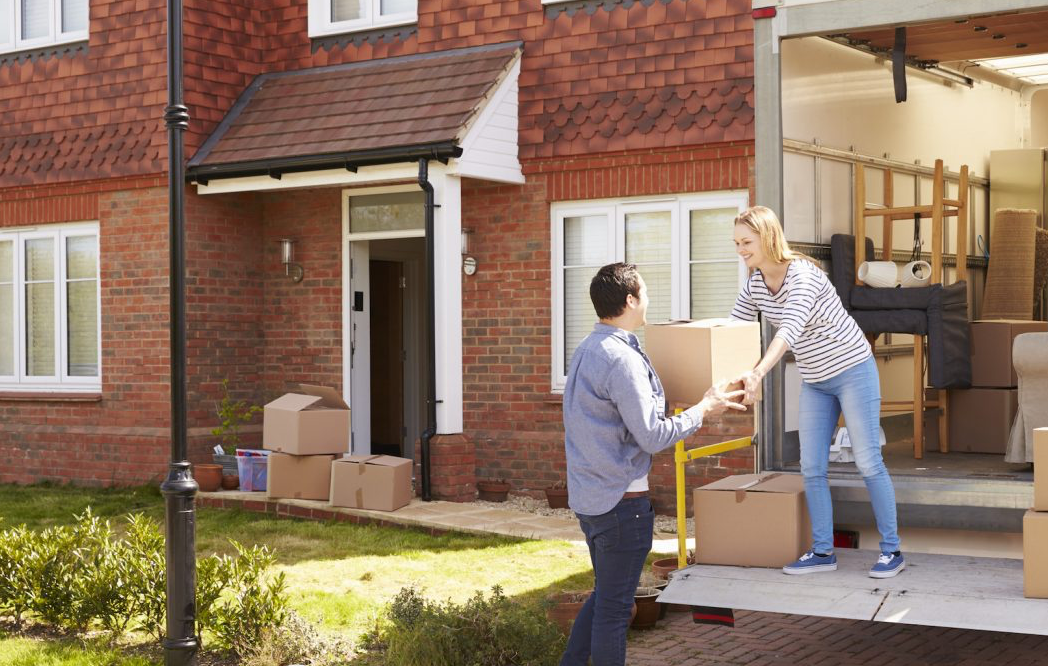Moving into a new house the eco way
Moving house can be stressful but it's also a chance to turn over a new leaf and start living more sustainably

The general consensus is that the average house move (that is from packing one house up in boxes to unpacking them in the next) generates about 17 kilos of carbon emissions, which is the equivalent to leaving an incandescent light bulb on for 53 days. But with careful planning it's possible to reduce that number, say moving firms.
Getting started
It is important to give yourself enough time to get everything in place. Start planning your move in good time and you'll be able to sort through your things, giving careful thought to what can come and what can be let go. This is important because you won't want to clutter up your new home with stuff you haven't used for years. So gather up clothes you no longer wear, kids' toys they haven't played with for years, furniture you don't really want any more and all those bits and pieces you've been thinking about taking to the charity shop. Well, with a new home on the horizon, decluttering in the weeks before moving day makes sense. You can also sell on online auctions, put stuff on Freecycle or donate to good causes, and by doing this you won't be adding to landfill waste. Oh, and there'll be less to carry on moving day, which could make the move cheaper.
Housemove company
If you're a student you may get away with a man with a van to help you move flats. But if you've got a house full of belongings, odds are a removals company will be needed to take care of your move. There are many companies out there, but do use as a criterion for judging one against another whether a company uses the latest fuel efficiency technology so its lorries meet London's ULEZ (ultra low emission zone) standards. And you could drill into their route planning - do they choose to travel at the least congested times of day? Setting off in a city rush hour is never a good idea. And opt for eco-friendly property cleaners to take away unwanted furniture and other large ites. They'll ensure everything is recycled or donated to an appropriate charity shop, which is good for the environment.
Cut the takeaway meals prior to moving
As soon as your move date has been confirmed, your kitchen should become your favourite room! Plan family meals around the foods you have in your freezer and store cupboard so you use up as much as possible before you leave. Taking food with you to a new property isn't very appealing and it can be hard to keep it cool and fresh, so aim to consume what you've got before you move. And moving into a new place can be the trigger needed to start on super eco practices in the kitchen - putting food scraps into a counter top composting bin, buying food as and when you need it. Stats show in the UK alone, some 7.4 million tons of food is wasted every year and householders throwing out perfectly good food when moving is part of the problem.
Packing materials
Used cardboard boxes are essential for the green mover, and you can find them at the rear of your local supermarket. Try to avoid plastic, such as bubble wrap, although there are some corn starch-based and paper products on the market and they can be composted. Wrap things like laptops in towels or blankets.
For heavy items, old fruit crates are a good idea if you can get your hands on some. There are also some companies that rent out reusable packing materials. Old newspaper is good for plates, cups etc and glasses can be wrapped in T-shirts. Just make a note on the box of what's in it!
Cleaning a new house
When you get into your new home, throw open the windows to air it and if you get there before the removals lorry, give the place a good vacuum and clean surfaces with eco-friendly cleaning products. Or make your own - vinegar in water is great for windows, while lemon juice is good on dirty hobs.